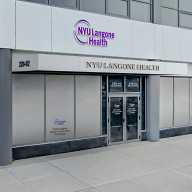The Federation of New York Housing Cooperatives and Condominiums (FNYHC) held a dinner and seminar on Tuesday, May 5, discussing a variety of issues of interest to its members.
During the event, which was held at Towers on the Green at North Shore Towers, FNYHC President Al Penisi detailed the history of bed bug issues in New York City.
Penisi said that the first case involving a cooperative was this year. He said that the Multiple Dwellings Law states that an owner has a duty to maintain the buildings and therefore they are the ones who are responsible for taking care of the problem.
“The first thing you do, you eliminate and exterminate the condition,” Penisi said. “Then you determine who’s responsible.”
Elder law attorney Wendy Goidel spoke to federation members about transferring apartments into trusts, which she said is done to protect assets when planning for long-term care costs. She said that there are several benefits to doing this without there being any risk to the cooperatives. They include the person being fully protected should they remain healthy and out of a nursing home for five years and avoiding probate.
Mark Hankin, also an attorney, addressed issues related to allowing reverse mortgages. He said it allows a person 62 or older to apply for a reverse mortgage, which is not paid back until a person passes away or their home is foreclosed on. Hankin also said that the reason many co-ops do not allow shareholders to have such mortgages is because they want to limit the amount of financing they have.
Hankin explained that a problem that has arisen from this situation is that it has been called discriminatory against a protected class, namely the elderly.
CPA Stephen William Beer informed those in attendance that the energy tax credit has been extended. He said that it is important to use experts when deciding what work to do to ensure that Energy Starr ratings are being followed properly.
FNYHC Executive Director Gregory Carlson gave an update on legislation, including the Cramp Down Mortgage Legislation, Starr Program and legislation involving pet policies at cooperatives.
The featured speaker of the evening was Rit Aggarwal, the New York City Director of Long-Term Planning. Aggarwal said that Mayor Michael Bloomberg and City Speak Christine Quinn have put together a package for existing buildings that has requirements and financing facilitation while only requiring work to be done that would pay for itself.
“What it envisions is an overall process of continuing improvements in our existing buildings,” he said. “We think this is a plan that makes sense.”
Aggarwal detailed the six components to the plan, four of which would be proposed through local laws and two of which would be administrative functions. First of all, he said that the city would take over local control of the energy codes, which are now under state control. Next, the plan would “facilitate and eventually require the process of continuing improvement in lighting.”
The plan would also require building managers to use a free online tool once a year to assess the efficiency of the building.
Aggarwal also said that the plan takes into account that all buildings are different and what makes sense for one may not make sense for the other.
“The concept behind this bill is those upgrades that are shown to have a five-year payback…would be required if the building can find the financing,” Aggarwal said. However, he added that if a building cannot find the financing then it would be able to get an ongoing deferral.
Additionally, the plan includes more training to ensure there are enough people to do the work and addressing financing. Aggarwal said the city will use $16 million of its stimulus money to fund a pilot program.
Aggarwal said that the proposal is currently before the City Council.





























